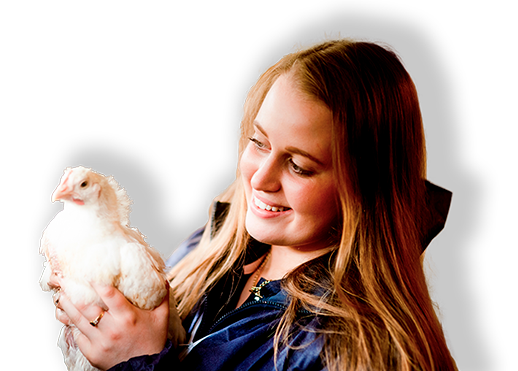Processing and Handling
The welfare of livestock, poultry, and aquaculture in our production facilities is regulated by the following standards depending on region and protein:
- Australia: Australian Animal Welfare Standards and Guidelines; Australian Standard for the Hygienic Production and Transportation of Meat and Meat Products for Human Consumption
- Brazil: Ministry of Agriculture and Livestock / Federal Inspection Service (MAPA/SIFI)
- Canada: Canadian Food Insoection Agency (CFIA) Meat Inspection
- Europe: Council Regulation NO 1099/2009
- Mexico: Buenas Prácticas Pecuarias en Producción de Pollo de Engorda de SADER y SENASICA
- United States: U.S. Department of Agriculture (USDA) and Food Safety and Inspection Services (FSIS)

Animal welfare responsibilities are managed by our Animal Welfare and Food Safety and Quality Assurance teams. Every facility has a full-time Quality Assurance Manager, Animal Welfare Manager, Animal Welfare Officer (AWO), veterinarian, or access to a regional team member who is responsible for overseeing the implementation of our animal welfare program. This includes facility assessment, training programs, and ongoing monitoring.
In the U.S., Brazil and Canada, these team members are humane handling specialists certified by the Professional Animal Auditor Certification Organization (PAACO).
In Australia, team members working with cattle, smallstock, and hogs are trained according to industry AWO skills. Additionally, facilities are accredited by the Australia Livestock Processing Industry Animal Welfare Certification System (AAWCS).
Huon has central and regional fish health teams that advocate for and oversee health, welfare, and biosecurity across all sites. Currently, 98% of Huon salmon are raised to the RSPCA’s Standard for farmed Atlantic salmon.
In our Pilgrim’s Europe poultry facilities, they are certified through Animal Welfare Training Ltd., and all personnel handling chickens must have a certificate of competency (COC). This is an assessed qualification issued by the regional regulatory authorities: Food Standards Agency (FSA) in Great Britain or the Department of Agriculture, Environment and Rural Affairs (DAERA) in Northern Ireland.
In our Pilgrim’s Europe Pork facilities, they are accredited according to Bristol University or Livestockwise.
Other animal welfare certifications include Global GAP and Certified Humane, for our Seara operations; Royal Society for Prevention of Cruelty to Animals (RSPCA) certification, for our Pilgrim’s Europe Pork and Huon operations; and the National Feedlot Accreditation Scheme (NFAS), for our Australian feedlot operations.
In addition, each production facility has team members from animal handling, processing, quality assurance, operations, procurement, and human resources who work to ensure that the policies and procedures required by their animal welfare programs, including annual training of all team members, are being correctly implemented and followed.
We have a zero-tolerance policy for abuse of any kind, and all team members are required to report any violations, either anonymously through our Ethics Line or directly to management. Team members or family farm and ranch partners who violate our Animal Welfare Policy and associated procedures are subject to disciplinary action including termination of employment, termination of contract and/or reporting to the government authority responsible for overseeing animal welfare.
Training
All new JBS team members in relevant areas, such as live operations, catching, transportation, receiving, and quality assurance, receive department-specific animal welfare training during orientation, and all team members who handle animals must attend annual refresher trainings. Appropriate management teams make sure that all training requirements are completed as scheduled, documented, and available for review.
Audits
Production facilities are audited regularly to guarantee compliance with our animal welfare programs. Quality assurance personnel conduct daily audits to verify adherence to each country’s respective compliance program, depending on the protein. Government inspectors also monitor animal welfare practices daily to guarantee compliance with regulations.
Production facilities typically undergo third-party animal handling audits annually. If a violation is identified, immediate corrective action is taken, and internal follow-up audits are scheduled until the issue is resolved. We share corrective action strategies across the company so that all facilities can benefit from new knowledge and perspectives to drive continuous improvement in our approach to animal welfare.
In addition, we have implemented video auditing systems in many of our production facilities, which allow us to conduct real-time internal auditing from a viewing room and provide team members with immediate feedback for improvement. Our video footage is audited remotely by our animal welfare team and/or an independent third party. These independent reviews are designed to verify our ongoing commitment to best practices in animal handling and include alerts and daily summaries to facilities for process improvement.
Our Animal Handling Performance
| Animal Welfare Audits | Transportation Audits | ||||||||||
| Internal Audits Passed | Third Party Audits | Third Party Audits | |||||||||
| Passed | Passed | Passed on the first attempt | Passed | Passed on the first attempt | |||||||
| Business | Protein | 2022 | 2023 | 2022 | 2023 | 2022 | 2023 | 2022 | 2023 | 2022 | 2023 |
| JBS Australia | Beef & Lamb | 89% | 100% | 100% | 100% | 89% | 93% | n/a | n/a | n/a | n/a |
| Pork | 100% | 100% | 100% | 100% | 89% | 93% | n/a | n/a | n/a | n/a | |
| Fish | n/a | 82% | n/a | 100% | n/a | 100% | n/a | n/a | n/a | n/a | |
| JBS Brazil | Beef | 100% | 100% | 100% | 100% | 100% | 100% | 100% | 100% | 100% | 98% |
| Chicken & Pork | 99% | 50% | 88% | 100% | 99% | 100% | 100% | 100% | 100% | 100% | |
| JBS USA | Beef | 100% | 98% | 100% | 100% | 100% | 96% | 100% | 100% | 100% | 100% |
| Pork | 100% | 100% | 100% | 100% | 100% | 100% | 100% | 100% | 100% | n/a | |
| Pilgrim's Mexico | Chicken | 100% | 100% | 100% | 100% | 100% | 100% | 100% | 100% | 100% | 100% |
| Pilgrim's Europe | Chicken | 100% | 100% | 100% | 100% | 100% | 100% | 100% | 100% | 100% | 100% |
| Pork & Lamb | n/a | n/a | n/a | n/a | n/a | n/a | n/a | n/a | n/a | 100% | |
| Pilgrim's U.S. | Chicken | 100% | 93% | 100% | 100% | 100% | 100% | n/a | n/a | n/a | n/a |
| Rigamonti | Pork | n/a | 100% | n/a | 100% | n/a | 100% | n/a | n/a | n/a | n/a |
Case Studies
Achieving and maintaining this accreditation hasn’t happened overnight—we have worked closely with the RSPCA Approved Farming Scheme over many years to meet their high standards, and it is something that everyone working for Huon has been instrumental in achieving.

